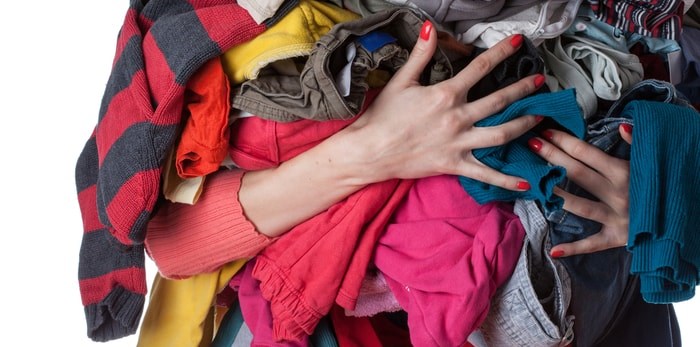Metro Vancouver is encouraging residents to “think thrice” before tossing that ugly blouse, ripped jeans or socks with holes into the garbage. Most unwanted clothing items can be repurposed, donated or repaired, reducing the amount of waste in the region.
“Clothing is never garbage, because textile materials are durable and have a long useful life,” said Jack Froese, Chair of Metro Vancouver’s Zero Waste Committee. “There's a range of options to donate clothing. Many thrift stores or second-hand retailers offer a pick-up service from your home and accept donations in-store. Metro Vancouver transfer stations also offer donation bins.”
Metro Vancouver residents collectively throw out an average of 44 million pounds of textiles each year, equating to the weight of 44 t-shirts per person. New public opinion research conducted by Metro Vancouver suggests people are likely to donate clothing they no longer need, but approximately 40% of respondents were unclear what can or can’t be donated.
Metro Vancouver, through its website www.clothesarentgarbage.ca, hopes to help residents with this conundrum, noting the message from second- hand clothing retailers is that they will accept almost anything.
“The main thing is that the clothing you are donating should be clean, dry and packed in a box or bag,” adds Froese. “Mouldy, paint-stained or oil-covered clothes can be difficult to re-use but clothes with holes or a single shoe can still be repurposed for a new and longer life.”
Based on the success of a pilot project launched earlier this year, Return-It has established a permanent collection facility for textiles at the following locations:
- Edmonds Return-It
- Kensington Square Return-It
- Lougheed Return-It
- Metrotown Return-It
- Sapperton Return-It
- Queensborough Landing Return-It
Those who aren’t quite ready to part with a well-loved item, and are keen to repair their damaged clothing – as reported by more than 61% of women and 49% of men in the survey – can find tips on DIY clothing repair and alterations at www.clothesarentgarbage.ca.
Metro Vancouver has also partnered with Frameworq, a local non-profit organization that facilitates clothing swaps and free clothing “fix-it“ events that focus on teaching practical clothing repair skills.
Upcoming event dates include:
- Archive Consignment Pop-up– February 28 and March 1, Chinese Cultural Centre, Vancouver
- Birth Fair– March 7 to 8, Coast Langley Hotel, Langley
- Richmond Repair Fair – March 14, Richmond City Hall, Richmond
Those who attend will be provided with a small DIY mending kit to assist with their own clothing repairs.
Textile waste is one of the fastest-growing categories of waste, currently accounting for five percent of the annual total garbage produced each year in the region. The ‘Think Thrice About Your Clothes’ campaign at www.clothesarentgarbage.ca provides information on everything from how to make alterations to existing wardrobe items, to stain removal and clothing rental services. The website also includes valuable tips for buying second-hand clothing, which is a great way to find unique items while reducing textile waste.



